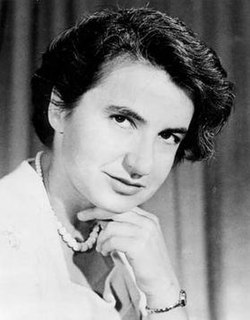A Quote by George W. Bush
Science is important, but so is ethics, so is balancing life. To destroy life to save life - it's one of the real ethical dilemmas that we face.
Related Quotes
Life is an opportunity, benefit from it. Life is beauty, admire it. Life is a dream, realize it. Life is a challenge, meet it. Life is a duty, complete it. Life is a game, play it. Life is a promise, fulfill it. Life is sorrow, overcome it. Life is a song, sing it. Life is a struggle, accept it. Life is a tragedy, confront it. Life is an adventure, dare it. Life is luck, make it. Life is too precious, do not destroy it. Life is life, fight for it.
Today it is considered as exaggeration to proclaim constant respect for every form of life as being the serious demand of a rational ethic. But the time is coming when people will be amazed that the human race existed so long before it recognized that thoughtless injury to life is incompatible with real ethics. Ethics is in its unqualified form extended responsibility to everything that has life.
I think of myself as being an ethical man, but I don't try to teach ethics. I have no message. I know little about contemporary life. I don't read a newspaper. I dislike politics and politicians. I belong to no party whatever. My private life is a private life. I try to avoid photography and publicity.
You look at science (or at least talk of it) as some sort of demoralising invention of man, something apart from real life, and which must be cautiously guarded and kept separate from everyday existence. But science and everyday life cannot and should not be separated. Science, for me, gives a partial explanation for life. In so far as it goes, it is based on fact, experience and experiment.
Using the phrase business ethics might imply that the ethical rules and expectations are somehow different in business than in other contexts. There really is no such thing as business ethics. There is just ethics and the challenge for people in business and every other walk in life to acknowledge and live up to basic moral principles like honesty, respect, responsibility, fairness and caring.
As a matter of ethics - our broader social life needs to be constrained by law and other devices - resolving at the societal level matters that should not be left for individual ethical negotiation. What is important - in the end - is that we are enabled to flourish in ways that acknowledge our dignity.
The elemental fact, present in our consciousness every moment of our existence, is: I am life that wills to live, in the midst of life that wills to live.... The essence of the humane spirit is: Preserve life, promote life, help life to achieve its highest destiny. The essence of Evil is: Destroy life, harm life, hamper the development of life
We face a fundamental question which can be described as both ethical and ecological. How can accelerated development be prevented from turning against man? How can one prevent disasters that destroy the environment and threaten all forms of life, and how can the negative consequences that have already occurred be remedied?
The thinking man must oppose all cruel customs no matter how deeply rooted in tradition or surrounded by a halo. We need a boundless ethics which will include the animals also. My life is full of meaning to me. The life around me must be full of significance to it. If I want others to respect my life, then I must respect the other life I see however strange it may be to mine. Ethics in our western world has hitherto been largely limited to the relation of man to man... but that is a limited ethics.
The mistake made by all previous systems of ethics has been the failure to recognize that life as such is the mysterious value with which they have to deal. All spiritual life meets us within natural life. Reverence for life, therefore, is applied to natural life and spiritual life alike. In the parable of Jesus, the shepherd saves not merely the soul of the lost sheep but the whole animal. The stronger the reverence for natural life, the stronger grows also that for spiritual life.





























